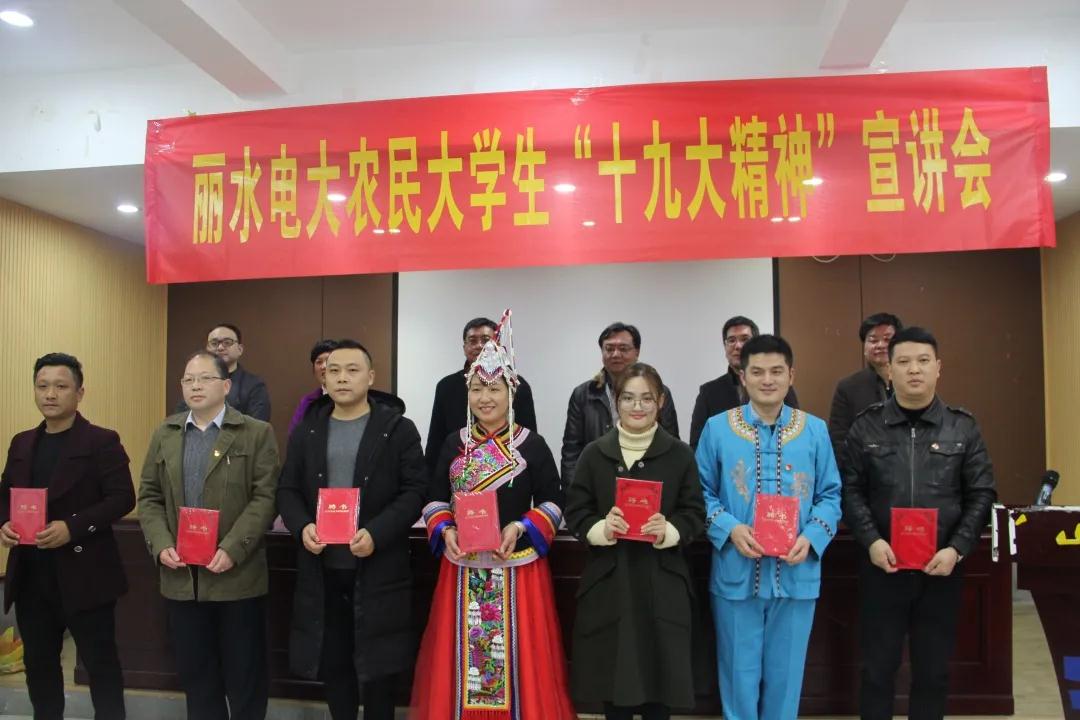 In Lishui, a special team of rural college students from Lishui Radio and TV University (RTVU) has been traveling the countryside spreading the message of rural revitalisation. The first of such teams in Zhejiang, it has visited more than 130 rural areas over the last three years to give information and assistance to farmers there.
In Lishui, a special team of rural college students from Lishui Radio and TV University (RTVU) has been traveling the countryside spreading the message of rural revitalisation. The first of such teams in Zhejiang, it has visited more than 130 rural areas over the last three years to give information and assistance to farmers there.
Shi Leifen, head of the group and a Lishui RTVU professor, said with joy:“These students are putting their learning to use. They have a practical focus, and are spreading hope along with new ideas”. Their work has been recognised as an excellent ideological and political effort of the Zhejiang RTVUs.
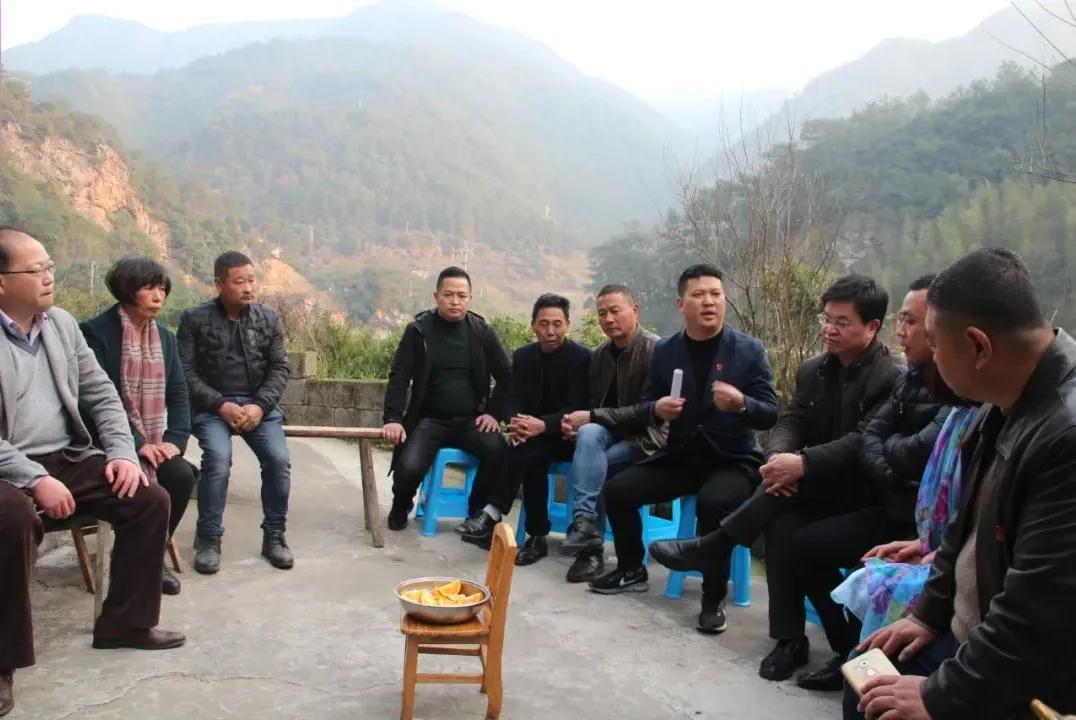
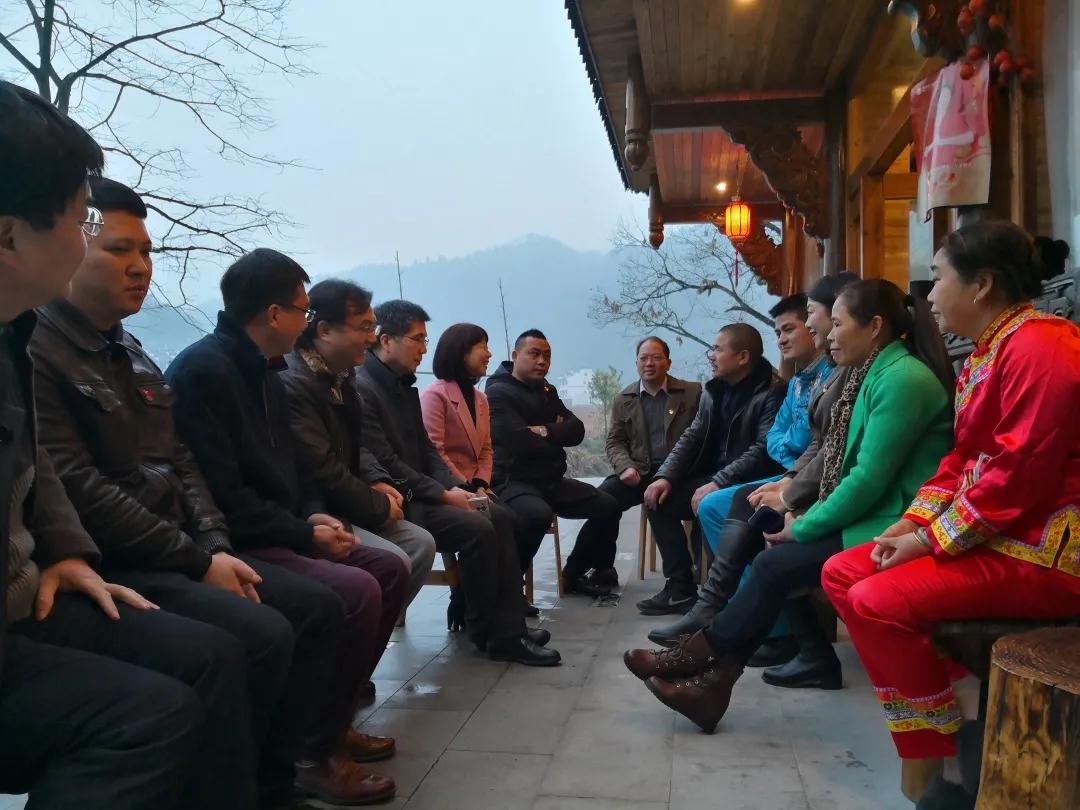
Happy “preaching” by rural college students
The work of rural college students is seasonal, leaving them time for university when farming is less busy. In 2006, the “One College Student per Village Programme” was started in Lishui City with financial contributions from the government and the cooperation of the university. Over the past decade, more than 6,400 rural college students have received training through it, and they have become the leaders of rural reconstruction.

The 19th National Congress of the Communist Party of China, held in October 2017, laid out a strategy of rural revitalisation, and a new blueprint for rural development. That November, Lishui RTVU took the lead by setting up the student team to disseminate the guiding principles of the Congress, encouraging farmers to better their lives by way of brainstorming and collective effort.
“Rural college students are well-suited to this kind of work because of their learning and their technology and management skills. What’s more, they know the countryside well,” said Shi Leifen. “Popularising the guiding principles of the Congress is bound to be efficient and effective.”

It is imperative that dissemination of this kind take place, and for the students to communicate the guiding principles on the basis of their own learning, practical skills, and interpretation of the report in order for rural revitalisation to proceed.
Their local orientation is impressive and helpful to farmers
The communications of the team are clear, and aligned with local conditions, which enhances their usefulness.
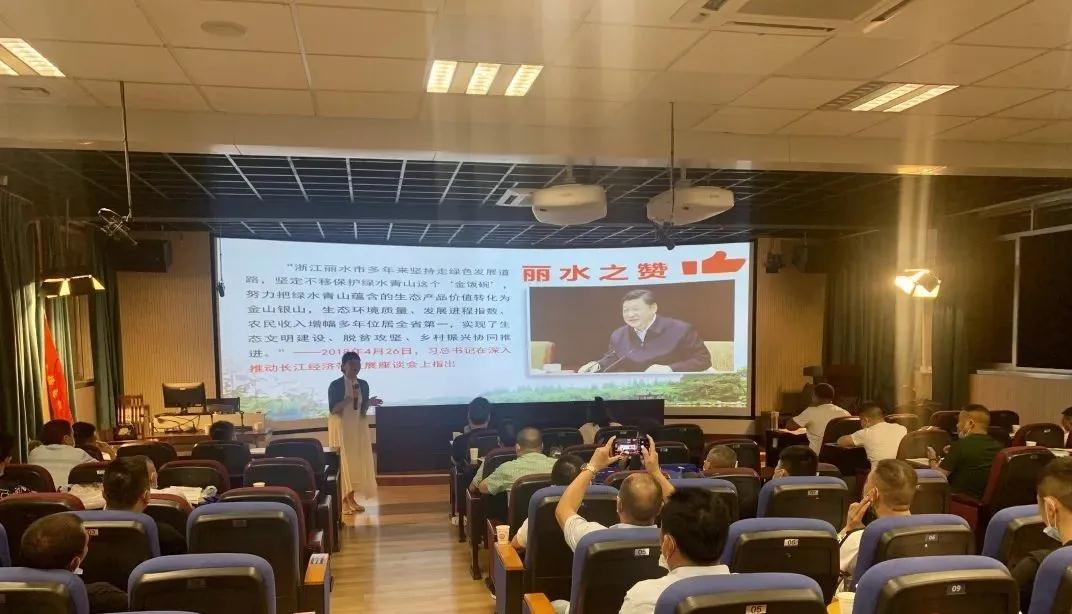
Since beginning its work, the team has been focusing on key issues, and continuing to adjust its message to circumstances. It has also refined its approach to follow a template of “one lesson, three meetings and three entries”. The lesson is a tutorial on the guiding principles of the 19th CPC National Congress, explaining clearly the issues related to livelihoods, rural economies and culture laid out in the report; “three meetings” refers to the preparation of the content, the exchanges that take place within the team, and the final report, undertaken by the team via targeted tutorials and face-to-face communication; and “three entries” refers to entering the rural areas, visiting farmer households, and approaching farmers in their fields in order to achieve wide dissemination of the guiding principles of the Congress.
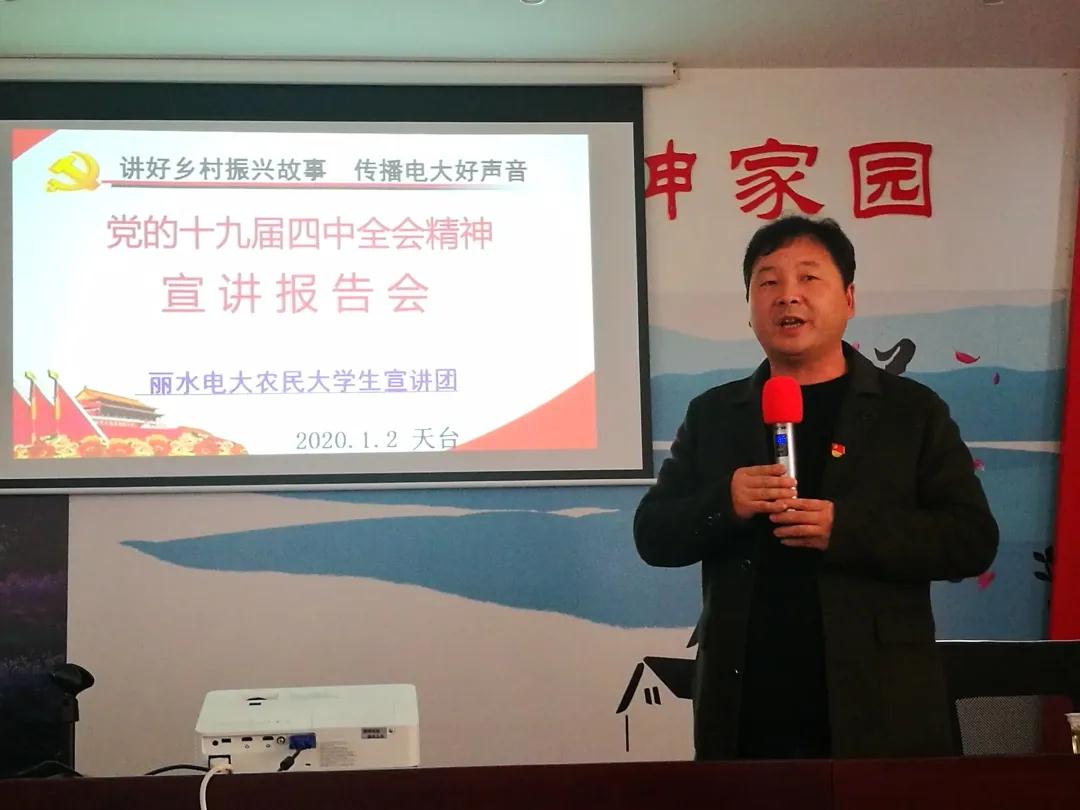
At the beginning of this year, the team was invited to present on the guiding principles of the Congress to officials and the general public at Zhangjiatong Village in Jietou Township, Tiantai City. At the meeting, Lou Ganqiang, secretary of the Lianfeng Village Party branch in Jinyun County told of the transformation of his “dirty, chaotic and poor” village into a beautiful “star”village through effective Party leadership. Meanwhile, Ma Wenhua, secretary of the Party branch of Langqi Village in Liandu District, spoke of rural revitalisation being promoted by focusing on standardisation of systems as well as democratic management and supervision.
Similar examples of theory being put into practice are common, and the team works hard to promote these, making use of the advantages the RTVU system offers in terms of publicity and education.
Not just promoting but implementing
New ideas need to be implemented, not just conveyed, and as it passes through the vast countryside, the team is committed to enthusiastic renewal of rural areas.

Zhou Hongwei, secretary of the Party branch of Huangnidun Village in Liandu District, both disseminates the new ideas and puts them into practice, creating a “Huangnidun experience” of grass-roots governance and turning the once poor village into a “star village” and an example for the region.
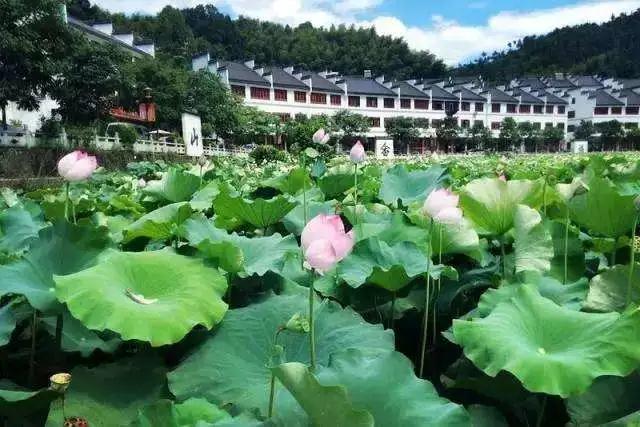
Lan Jianqing, secretary of the Party branch of Lishan Village in Liandu District, led a village renovation that has since made it a tourist destination.
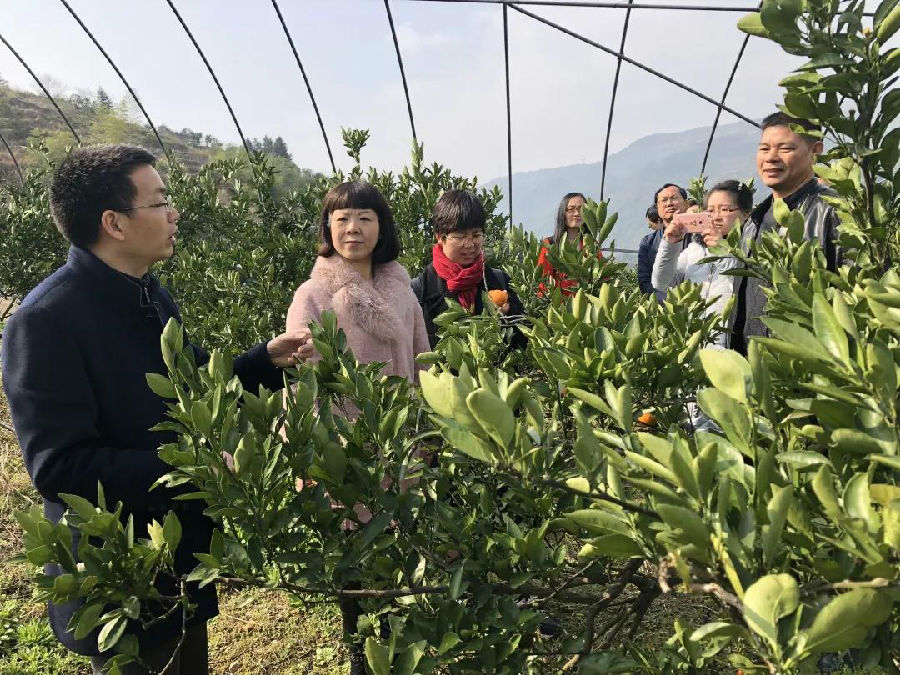
To help promote industrial development, the team brought in social-science, agriculture and forestry experts from Lishu and visited Zhuzhou Village, a centre of orange production in Taiping Township, to apply the principles of the Congress there and offer insights on furthering development through measures such as brand building. Now, the village's once-barren Niutou mountain boasts a variety of bountiful fruit.
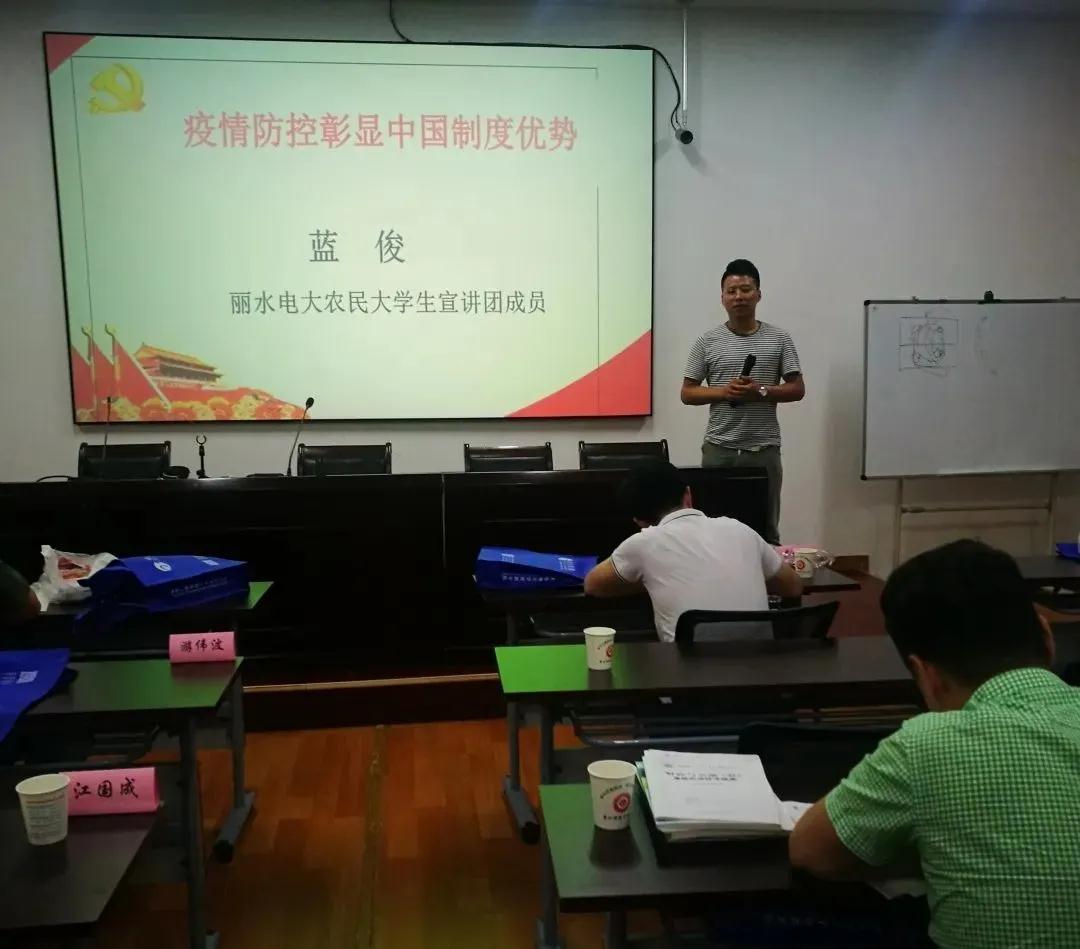
It is worth mentioning that the team was at the forefront of dealing with the COVID-19 epidemic, visiting thousands of households and doing its best to disseminate information through both traditional and modern channels (the latter including WeChat) while urging villagers to stay home. They also undertook screening, kept watch at checkpoints, and monitored quarantine. They made themselves useful wherever there was a need.
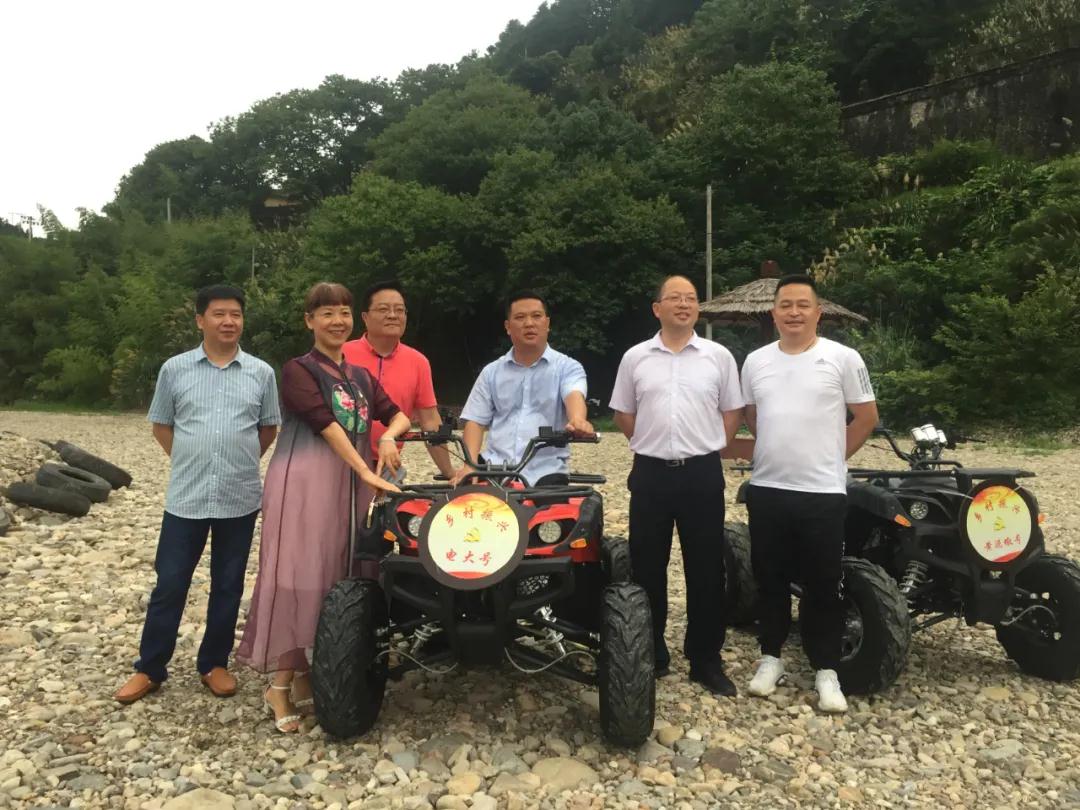
To Yang Yunfeng, secretary of the CPC Committee and president of Lishui RTVU, the team has done a great deal to foster “virtue through education” at the university. The rural college students are able to learn things that cannot be learned in classes or books, and enhanced their skills. Furthermore, it has put new ideas to practical use, and promoted economic and social development.
Reprinted by OUC News Network from Zhong Genqing, Lishui Daily